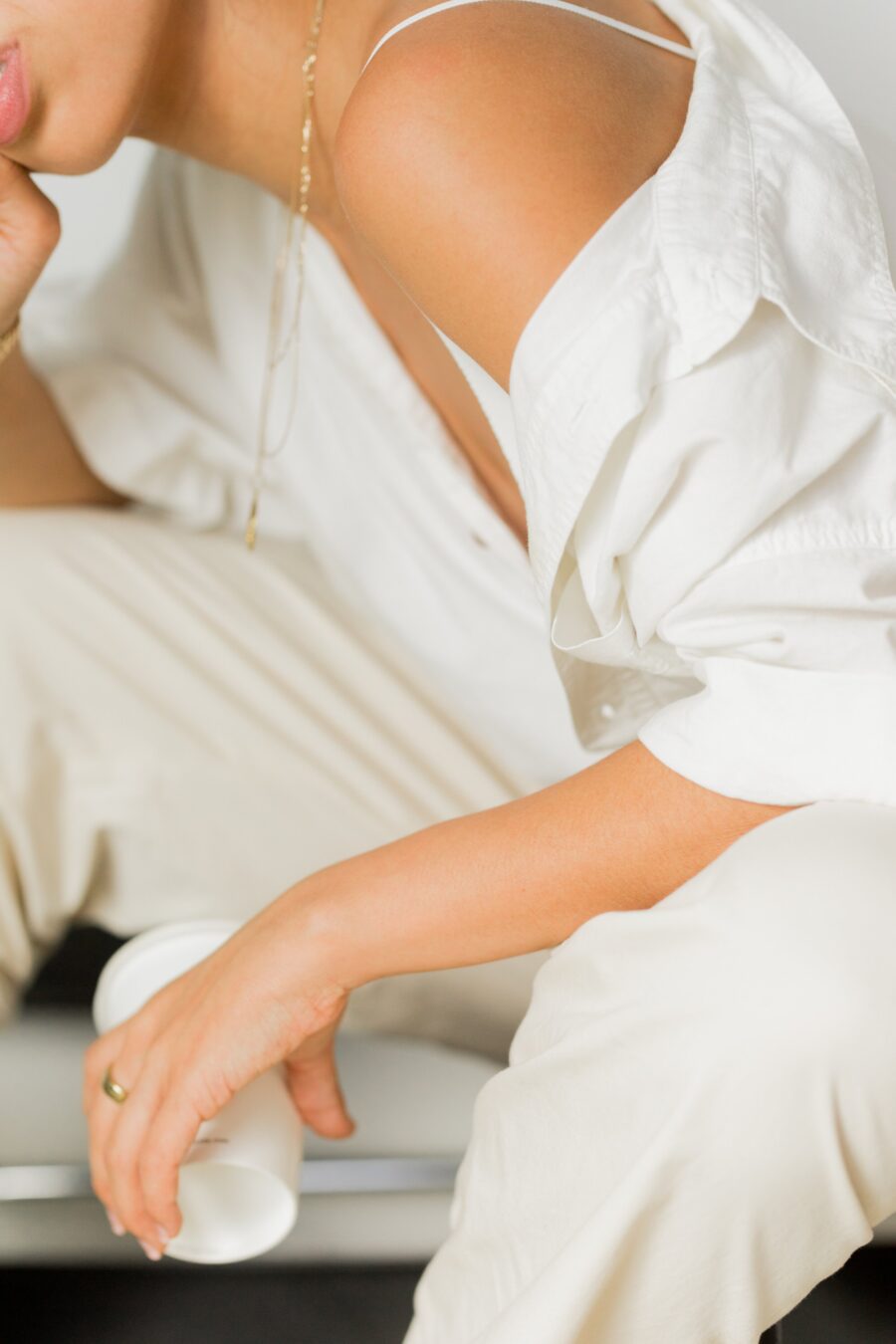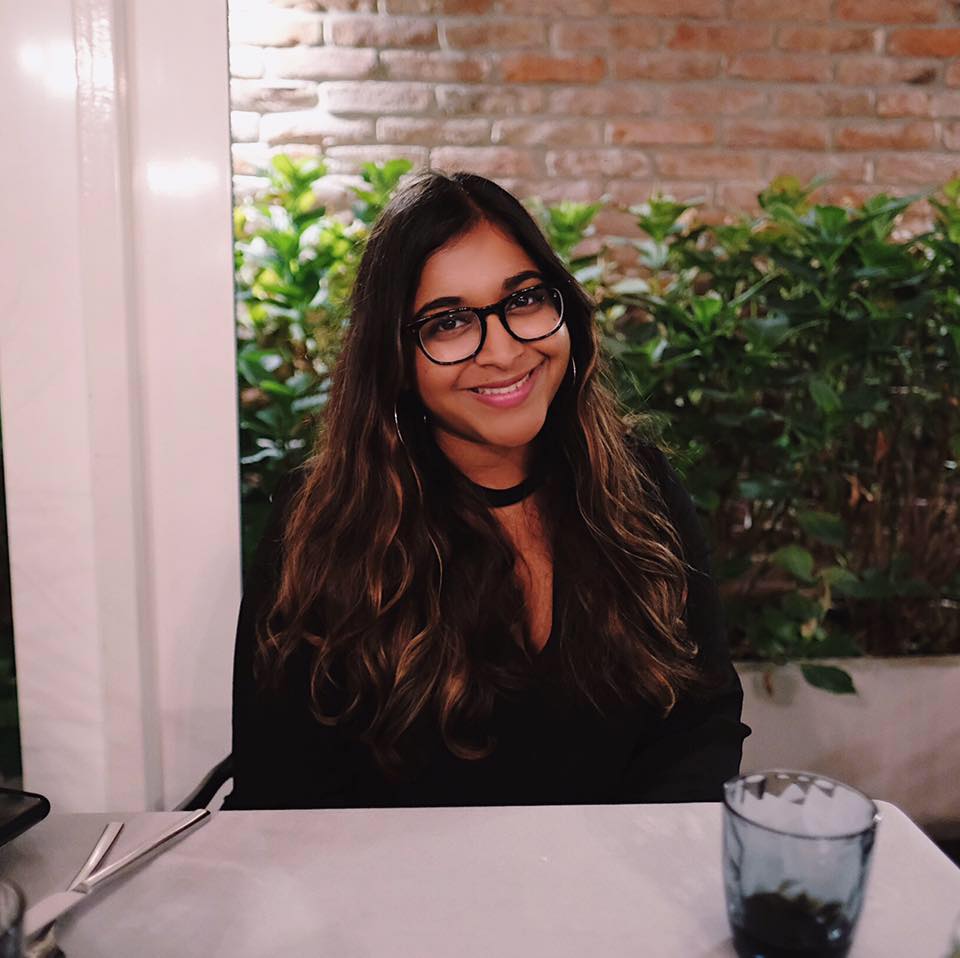
How I’m Learning To Cope With Health Anxiety
Dealing With Health Anxiety
It was late July when I noticed a lump in my right breast. The discovery sent shockwaves all throughout my body, triggering a more-than-mild panic. I’d experienced a slew of benign breast issues prior, and my aunt had also fought breast cancer in recent years.
My brain raced to the worst possible conclusion: It must be a tumor. Then the psychosomatic pain started, brought on by anxiety, which further heightened my fears.
I worried for weeks until my scheduled doctor’s appointment. I ruminated on what the diagnosis could be, unable to focus at work or even sleep well. I called friends sobbing that the visit could reveal my biggest fear. At my birthday dinner with my best friend, I even sheepishly asked her to check if she could feel the lump too. (She could not.) It was all-consuming.
“This pendulum swing between healthy and unhealthy was not an uncommon experience for me, thanks to my anxiety.”
At my appointment, my doctor lovingly told me she didn’t notice anything out of the ordinary, but to be safe, we could schedule an ultrasound. And they found… nothing. Completely healthy tissue. The pain then went away overnight, and there was no hard mass to be found soon after.
I’m glad I gathered the courage to see my physician; it was the right thing to do. (And for the record, it was most likely a cyst that dissolved on its own.) But this pendulum swing between healthy and unhealthy was not an uncommon experience for me, thanks to my anxiety.
In the years since, I’ve had similar episodes, albeit not as severe. That subtle pain near my belly? It must be an ovarian tumor. That mild headache I had for a day or two? Surely it’s COVID, despite being fully vaccinated and testing negative.
While I’m grateful for the heightened sense I have of my body—and also for health insurance—this extreme kind of health anxiety can be hard to manage. Previously called hypochondria and now renamed illness anxiety disorder, this condition takes over my brain at times. It tells me I have a serious issue when there is none. But I’m slowly learning to cope.
The Origins Of My Anxiety
For many people living with chronic illness, pinpointing exactly when symptoms began can be difficult. Not me, though; I have vivid memories of when I shifted to “worry” as my default reaction.
When I was in my early teens, my mother noticed a bump on my left middle finger and she begged me to see the doctor. Turns out, it was a callus from how I write. A year or two later, I had darkened skin on my wrist that caused concern. (It was yet another callus from how I laid my arm on desks while typing.) Then there was the time I had a bump in my underarm which my mother decided had to be a sign of lymph node infection, right? Nope, just an overgrown hair causing a boil.
“I couldn’t live like this, with the constant belief I must be one step away from death’s door when I was actually relatively healthy.”
As much as I understood my mother’s concern—as any parent might have with their child—the recurring scares unlocked my brain’s deepest fears. I already suffered from generalized anxiety disorder, and this added layer of worry about my health became part of my everyday.
It didn’t help that I already deal with chronic issues, like acid reflux, debilitating headaches, and hormonal PMDD. Knowing which symptoms were, in fact, serious and which weren’t was almost impossible. It was like playing a terrifying version of Would You Rather: Would you rather believe that your nausea is PMDD, or that it’s ulcerative colitis and head immediately to the gastroenterologist? Would you rather not take it seriously and then regret it, or worry incessantly all day long?
The stress was draining in every way, and I was admittedly not a very fun friend or partner. (Shout out to my closest relationships who kept me grounded in those scary moments—a fun note is that my best friend even gifted me this book at one point, ha.) But eventually, I decided I couldn’t live like this, with the constant belief I must be one step away from death’s door when I was actually relatively healthy. The time had come to find long-term relief, emotionally, physically, and mentally.
Coping With Health Anxiety
Someone jokingly asked me once if I ever considered “just not being anxious.” And of course, if life were that easy, I would be cured. But anxiety of all kinds—especially health anxiety—cannot necessarily be “fixed” without structures, support systems, and coping mechanisms in place.
The first step I took was going on medication. Not only did this reduce my general anxiety, but it also helped me rationalize fears about my health. In instances where I would physically manifest symptoms from my anxious mind, I was able to see those symptoms for what they were, not as part of a serious illness. I will be forever grateful for those tiny Fluoxetine pills, filled with serotonin regulators.
I continued the work by restarting therapy. Unlike earlier where I was seeking therapy for a family-based issue, this time I prioritized finding a therapist who had extensive experience with anxious thoughts. I learned about the different factors that fueled my health anxiety. I explored my reassurance seeking, misinterpretations of regular bodily symptoms as a threat, and ongoing catastrophizing (surprise, surprise).
“Most importantly though, I began talking to my doctors proactively about my health anxiety.”
Then we turned to cognitive behavioral therapy (CBT) methods, like asking what proof I had that I was really sick. Yes, I might be having pelvic pain for a few days, but if the cramping went away on its own and didn’t return for weeks at a time—I’m going to say it probably wasn’t serious? I essentially applied the same thought process to any symptom and potentially related conditions, slowly noticing that I wasn’t ticking all the boxes for any major illness.
Most importantly though, I began talking to my doctors proactively about my health anxiety.
In years past, I had avoided medical appointments as much as possible. I was afraid of a diagnosis or, conversely, how they’d dismiss me. But after another recent scare, a close friend—who had similarly struggled—suggested I be more open about this condition to trusted doctors and to schedule regular checkups. I was against this at first, terrified.
But as I found physicians I liked and began to see them more frequently, I built up trusting relationships, ones that didn’t include dismissal at all. Going in on a periodic basis alleviated my fears that there must be something wrong, because I was regularly examined to prove otherwise.
“Going in on a periodic basis alleviated my fears that there must be something wrong, because I was regularly examined to prove otherwise.”
Momentary flare-ups still happen—earlier today, I felt out of breath for no reason and considered all the worst case scenarios—but I’m much better equipped to rationalize and calm my worried mind.
Instead, I can now take a moment to examine my thoughts, see them for what they are, and, perhaps unlike that lump, get them off my chest.
Henah Velez (she/her) is an Editor at The Good Trade. She holds a Master’s in Social Entrepreneurship and is a proud Rutgers grad. Originally from NJ, Henah’s now in Santa Barbara, CA, where she loves shopping small, hanging with her pets, or traveling. Say hi on Instagram!




